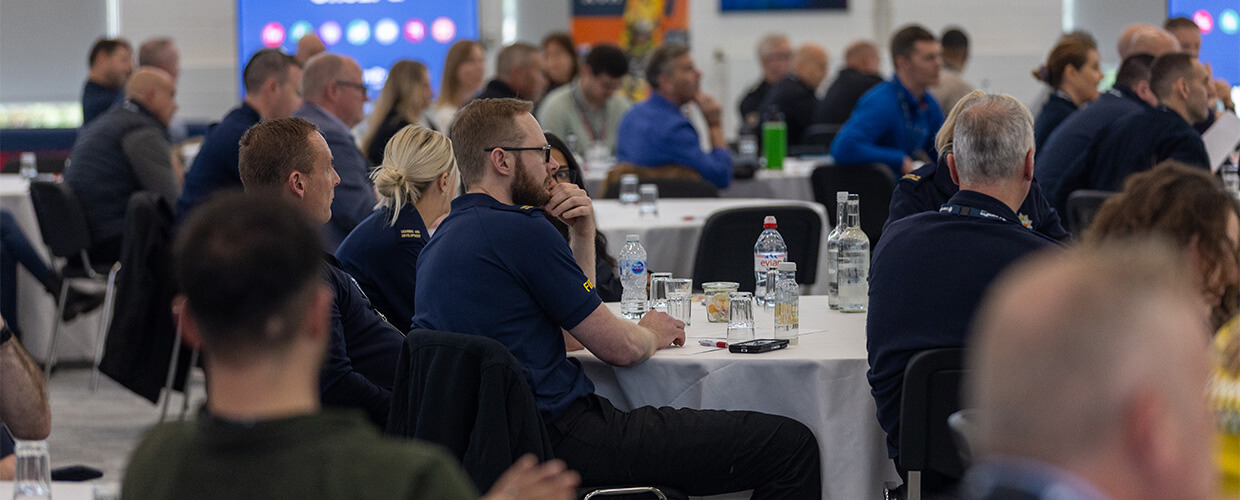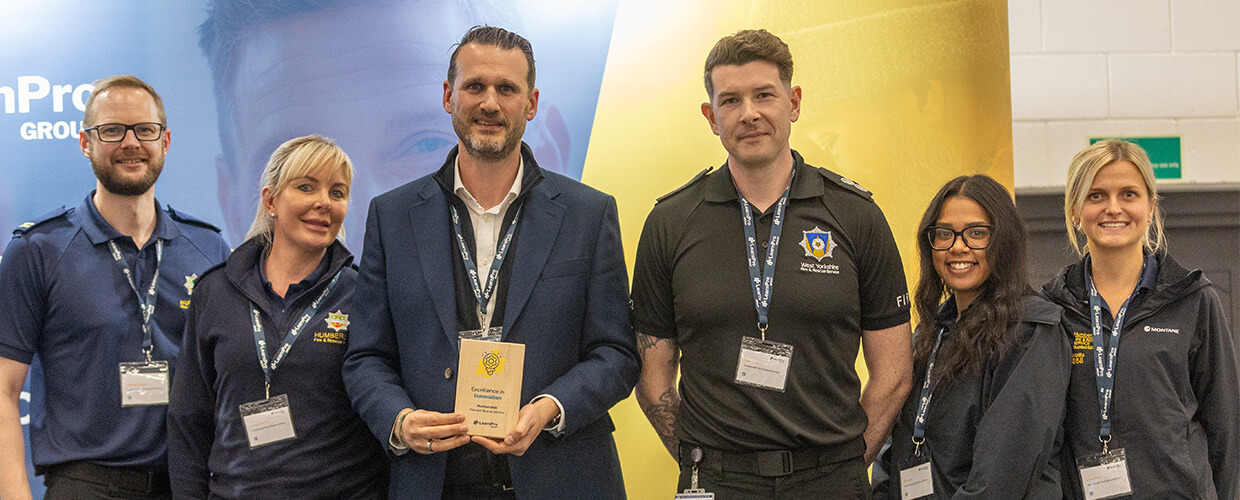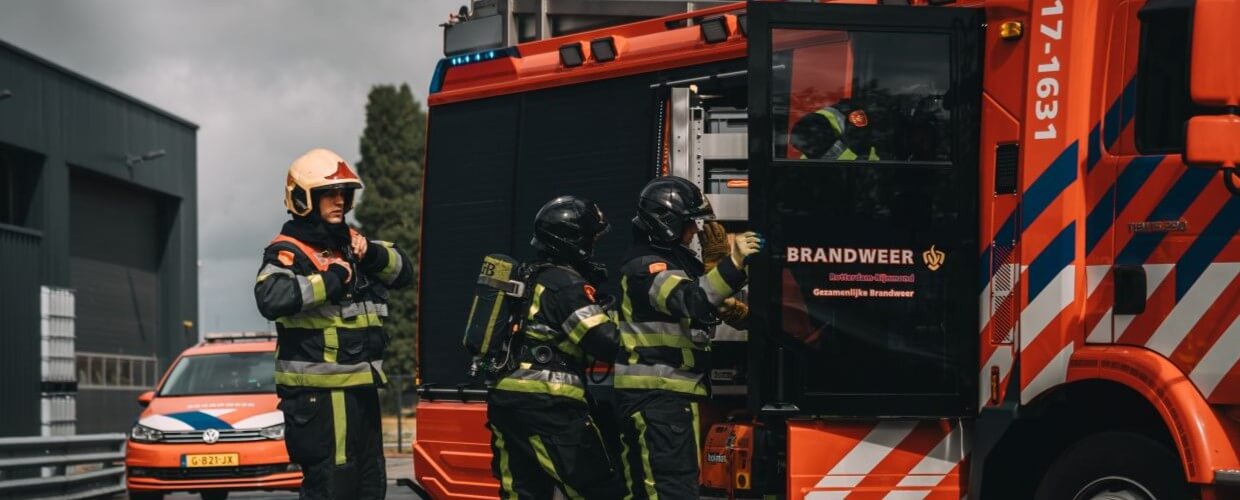Crisis decision-making and command training for police
Recent major incidents such as the Manchester Arena bombing and the associated inquiry have highlighted that police forces have an incident command skills gap in their chain of command – particularly for junior and frontline officers who do not usually receive command and control training beyond their recruitment and probationary period.
While specialist commanders receive bespoke, accredited incident command training, similar training for average response inspectors or critical incident managers does not exist in most forces – particularly not with a holistic approach to incident command training that would make them adequately prepared and skilled to face a wide range of incidents. In the Manchester Arena Inquiry recommendations, emphasis was placed on developing the command competencies of any officer who could be expected to take on a command role during a spontaneous Major Incident, and on creating the necessary nationally accredited courses for this purpose.
The Inquiry Chairman also stressed that multi-agency cooperation was paramount to making proper risk assessment and getting victims the best help in the best way, but also that “it is necessary to ensure that JESIP works in practice and not just in theory. […] More training, more practice, and the right sort of practice, are needed. Lessons need to be learned when things go wrong in exercises or in a real emergency, and change implemented as a result. Most importantly, individual emergency services must not operate alone.”
It is therefore clear that there is a growing need for effective training programmes suitable for all levels of command that will equip officers with adequate command and control skills, and, not least, the confidence they need to make assertive, effective and safe decisions when facing extreme situations. High-fidelity training, such as simulation training, was mentioned in the Manchester Arena Inquiry recommendations as a possible answer for this.
The case for developing suitable command and control training for all levels of police was presented by Dr Katherine Lamb (Company Director at K Lamb Associates) and Costi Karayannis (CEO of LearnPro Group) in a talk on the topic “Incident Command & crisis decision-making: How can we prepare the force of the future for the unexpected?” during the 2023 Emergency Services Show in Birmingham. Dr Katherine Lamb has more than 15 years of experience developing and delivering command training for UK Fire & Rescue Services and believes many of the processes can be applied in the Police sector as well. It starts with working out what learning outcomes you are trying to achieve through training, but she explains that if the Police sector wants to develop the right people with the right capabilities, more effort is required than implementing a standard set of courses delivering ‘incident solving blueprints’.
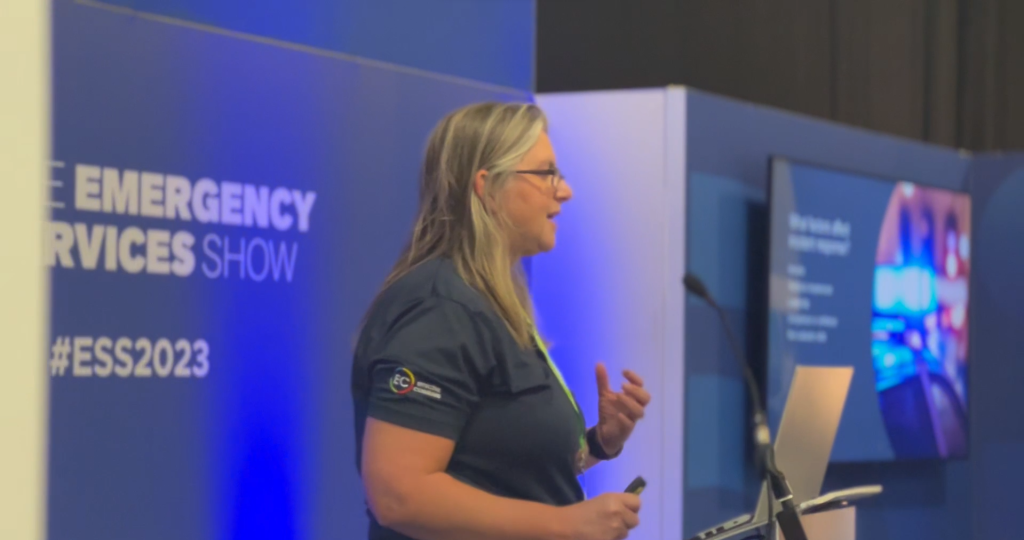
“Create thinking individuals”
Dr Katherine Lamb emphasized the importance of going beyond the standard training and assessment regime and instead creating what she calls “thinking individuals” – incident commanders who continuously develop their decision-making behaviours rather than focusing solely on skill-building for specific incident types, and who can look holistically at the incident they are facing to determine the right course of action at the right time, rather than taking a tick-box approach to commanding the incident.
She says, “To be able to empower people to make decisions flexibly during any incident response, you need to have thinking individuals who can apply the concepts and philosophies they have been taught, but who have the latitude to make decisions that flex within the paradigm of the incident they are facing. We do this by focusing on decision-making behaviours rather than specific competencies.”
She acknowledges that this is no easy task, and stresses that in order to ensure a successful implementation of such a new approach, it has to be a holistic solution driven from the top of the organisation to all corners of the force to ensure a unified approach.
“It’s important that there’s a holistic philosophy to deliver this kind of training,” she says. “You have to embed it from the bottom all the way up to the top. If you just focus on training or assessing, you end up with a disjointed philosophy. It has to run all the way through. You have to start teaching your initial recruits this philosophy and behaviour, and, importantly, the most senior officers of your organisation have to be on the same page. Otherwise, you will not have the synergy you need to ensure that you end up in the right place.”
Some of her key points for ensuring successful implementation are:
- Implementing new requirements for continuous training and assessment on all levels;
- Clear communication of the what, the why and the how, as well as the benefits of the changes being made;
- Clear, measurable learning objectives and curriculum for all levels; and
- Gathering extensive data throughout the process to support, diversify and evolve their efforts, and to identify future training needs.
Frontrunners: Devon & Cornwall Police
Devon & Cornwall Police are setting a pioneering example of how command and control training can be implemented effectively using a mixed-method approach. They have developed a 3-day training course for their tactical (silver) and operational (bronze) level officers. Two of the days focus on the theory behind incident command training, including JESIP and JDM, while the last day is spent running virtual reality command scenarios using the XVR Simulation platform.
The course is delivered by experienced instructors and commanders who can contextualise the theoretical concepts for the participants with real-life experiences, offering clear examples of how certain procedures or dilemmas could play out in reality. Participants then test their understanding and absorption of the learned material by running virtual reality scenarios developed specifically for this purpose. Using a head-mounted display, a participant is dropped into an incident scenario in the role of incident commander, while the instructors play the roles of fellow officers, members of the public and/or colleagues from other agencies. Meanwhile, the other participants observe them and learn from their interactions. Scenarios end with a debrief to discuss what went well and what can be improved.
The results of the course have so far been very good. To quantify the effectiveness of the course, the participants were asked to rate their confidence in their command skills on a scale of 1-10 before and after the training. The average confidence score was just under 6/10 before the training. After completing the command training course, confidence rates had increased to an average of above 9 (see below).
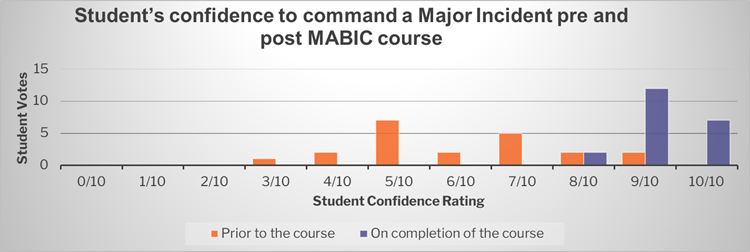
Participant feedback was also very enthusiastic about the level of immersion offered by the VR scenarios, with some stating that they felt they learned more from this method of delivery than from previous training sessions they had attended. The flexibility of the system allows participants to see the direct consequences of their decisions (or indecision) in real-time, and similarly, instructors can give feedback directly to maximise learning absorption. More than half of the participants requested more VR training in future courses, and Devon & Cornwall Police are looking into the options for expanding their efforts, also into multi-agency exercises.
Devon & Cornwall Police are demonstrating how to use virtual reality training successfully in developing the command skills of their officers. While VR will never replace essential, real-life training, it has been proven to be a valuable tool to help prepare first responders across the emergency services spectrum to handle increasingly complex incidents and to, ultimately, save lives.
If you are interested in learning more about how virtual reality training can be applied to police force training and assessment, please get in touch at info@learnprogroup.com.
To learn more about Dr. Katherine Lamb and her work, visit https://www.klambassociates.com/

